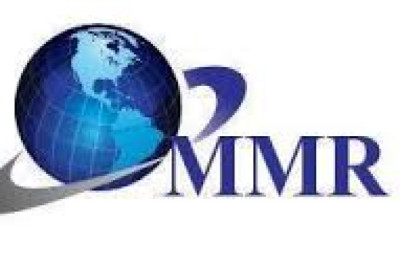views
In today's digital-driven world, ensuring business continuity requires more than just having a solid plan. With information being the lifeblood of any organization, the reliance on network storage solutions to safeguard data is paramount. However, how do you ensure that your storage solutions are not only effective but also reliable? This post dives deep into the landscape of network storage solutions, specifically focusing on NAS (Network Attached Storage) to help businesses thrive even in the face of adversity.
Network storage solutions have become a critical component of IT infrastructure, providing a stable and efficient means of storing and accessing data. This article will explore the intricacies of these systems, offering insights into their benefits, the technology behind them, and how they ensure the seamless operation of your business in an unpredictable world.
Understanding the Importance of Data Storage
Data is the backbone of modern business operations, enabling decision-making processes, customer interaction, and service delivery. With the exponential growth of data generation, businesses must adopt robust storage solutions to maintain seamless operations and ensure data availability.
Efficient data storage ensures that critical information is accessible when needed, minimizing downtime and enhancing productivity. For businesses, this means investing in network storage solutions that offer reliability and scalability. Such solutions not only store data securely but also allow easy retrieval, ensuring that businesses continue to function optimally even in challenging situations.
Choosing the right storage solution is, therefore, a pivotal decision that impacts the overall efficiency and resilience of a business. It requires an understanding of the different types of storage solutions available and their specific functions, which we will explore in subsequent sections.
Exploring Network Storage Solutions
Network storage solutions facilitate centralized data storage, making it accessible to multiple users and devices within a network. These solutions come in various forms, each serving distinct purposes to meet different business needs.
One primary form is Network Attached Storage (NAS), which connects directly to a network, providing a shared storage space for various devices. NAS storage solutions are popular for their ease of use, scalability, and ability to support multiple users simultaneously. They enable businesses to manage their data efficiently without needing complex server setups, making them an attractive option for small to medium enterprises.
By understanding the types of network storage solutions available, businesses can choose systems that align with their operational needs, ensuring seamless data management and accessibility.
The Role of Network Attached Storage (NAS)
Network Attached Storage plays a crucial role in modern IT environments by offering dedicated storage spaces that multiple users can access over a network. NAS devices are essentially specialized file servers designed to store and retrieve data over a network, providing a convenient and efficient way to manage data.
NAS storage solutions are particularly valuable for businesses looking to streamline their data management processes. They offer high-speed data access, ensuring that files and applications are readily available to users when needed. Additionally, NAS systems are easily expandable, allowing businesses to increase storage capacity as their data needs grow.
The reliability and simplicity of NAS make it an ideal choice for businesses seeking robust data storage solutions. By integrating NAS into their IT infrastructure, organizations can enhance their data management capabilities and ensure business continuity.
Benefits of NAS Storage Solutions
Implementing NAS storage solutions offers numerous benefits that contribute to business continuity and operational efficiency. One of the most significant advantages is data centralization, which facilitates easy access and management.
NAS devices provide a centralized repository for data, allowing users to store, share, and access files from a single location. This centralization streamlines data management processes, reducing the complexity associated with managing disparate storage systems.
Additionally, NAS storage solutions offer enhanced security features, protecting data from unauthorized access and data breaches. With built-in security protocols, businesses can safeguard sensitive information, ensuring that it remains confidential and secure.
Furthermore, NAS systems provide scalability, allowing businesses to expand storage capacity as needed. This flexibility ensures that businesses can accommodate growing data requirements without investing in entirely new systems, optimizing resources and reducing costs.
Ensuring Data Security with NAS
Data security is a paramount concern for businesses, and NAS storage solutions provide robust security features to protect valuable information. These systems incorporate various security measures to safeguard data from unauthorized access and cyber threats.
NAS devices offer user authentication protocols, ensuring that only authorized personnel can access stored data. Additionally, they support data encryption, which protects information during transmission, preventing unauthorized interception.
Furthermore, NAS systems provide backup and recovery features, ensuring that data is retrievable in the event of loss or corruption. Regular data backups and automated recovery processes minimize downtime and prevent data loss, contributing to seamless business continuity.
Optimizing Performance with NAS
The performance of data storage systems is critical to business operations, and NAS storage solutions are designed to deliver optimal performance. These systems provide high-speed data access, ensuring that users can retrieve and manipulate data quickly and efficiently.
NAS devices use advanced caching mechanisms to accelerate data access, reducing latency and improving overall performance. By optimizing data retrieval processes, businesses can enhance productivity and ensure that employees have the information they need to perform their tasks effectively.
Additionally, NAS systems support multiple users and devices simultaneously, facilitating collaboration and information sharing. This capability is particularly valuable for businesses with geographically dispersed teams, enabling seamless communication and collaboration across locations.
Scalability and Flexibility of NAS
One of the primary advantages of NAS storage solutions is their scalability and flexibility, which allow businesses to adapt to changing data requirements. NAS systems are easily expandable, enabling organizations to increase storage capacity without replacing existing infrastructure.
This scalability ensures that businesses can accommodate growing data volumes, supporting long-term growth and operational continuity. By providing a flexible storage solution, NAS devices enable businesses to optimize resources and reduce costs associated with data storage.
Furthermore, NAS systems offer compatibility with various operating systems and applications, ensuring seamless integration into existing IT environments. This flexibility simplifies implementation and management, allowing businesses to focus on core operations without worrying about data storage limitations.
Cost-Effectiveness of NAS Solutions
Implementing NAS storage solutions is a cost-effective strategy for businesses seeking reliable data storage without excessive expenditure. NAS systems provide a centralized storage solution that reduces the need for individual storage devices, optimizing resource utilization.
By consolidating data storage, businesses can minimize hardware and maintenance costs, improving overall cost-efficiency. Additionally, the scalability of NAS systems allows organizations to expand storage capacity incrementally, avoiding significant upfront investments.
Furthermore, NAS devices offer energy-efficient operation, reducing power consumption and lowering operating costs. This eco-friendly approach aligns with sustainable business practices, enabling organizations to achieve operational efficiency while minimizing environmental impact.
Overcoming Challenges with NAS
While NAS storage solutions offer numerous benefits, businesses may encounter challenges during implementation and management. It is essential to address these challenges proactively to ensure seamless operation and maximize the advantages of NAS systems.
One common challenge is network congestion, which can affect data access speeds and overall performance. By optimizing network configurations and implementing quality of service (QoS) protocols, businesses can mitigate congestion and ensure consistent performance.
Another challenge is data redundancy, which may arise from duplicating data across multiple NAS devices. Implementing data deduplication and compression techniques can help minimize redundancy, optimizing storage utilization and reducing costs.
Case Studies in NAS Implementation
Numerous businesses across various industries have successfully implemented NAS storage solutions to enhance data management and ensure business continuity. These case studies highlight the versatility and effectiveness of NAS systems in real-world scenarios.
For example, a mid-sized retail business integrated NAS devices into their IT infrastructure to centralize customer data and optimize inventory management. By leveraging NAS storage, the company improved data accessibility, reduced operational costs, and enhanced customer service.
Similarly, a healthcare organization adopted NAS solutions to manage patient records securely and efficiently. The scalability and security features of NAS systems enabled the organization to comply with industry regulations while providing reliable access to critical information.
Future Trends in Network Storage Solutions
The landscape of network storage solutions is continuously evolving, driven by advancements in technology and changing business needs. Emerging trends in this field offer exciting opportunities for businesses to enhance their data management capabilities.
One notable trend is the integration of AI and machine learning into storage systems, enabling predictive analytics and automated data management. These technologies offer insights into data usage patterns, helping businesses optimize storage utilization and improve decision-making processes.
Additionally, the adoption of cloud-based storage solutions is gaining momentum, providing businesses with scalable and flexible storage options. Hybrid storage models that combine on-premises NAS devices with cloud storage offer enhanced data security and accessibility, supporting seamless business operations.
Conclusion
In the quest for business continuity and operational efficiency, network storage solutions such as NAS play a vital role in ensuring data reliability and availability. By investing in reliable storage solutions, businesses can safeguard their valuable information, streamline data management processes, and adapt to changing data requirements.
With the insights provided in this article, organizations can make informed decisions about integrating network storage solutions into their IT infrastructure. By leveraging the benefits of NAS storage, businesses can secure their future, remain competitive, and continue to thrive in an increasingly digital world.











